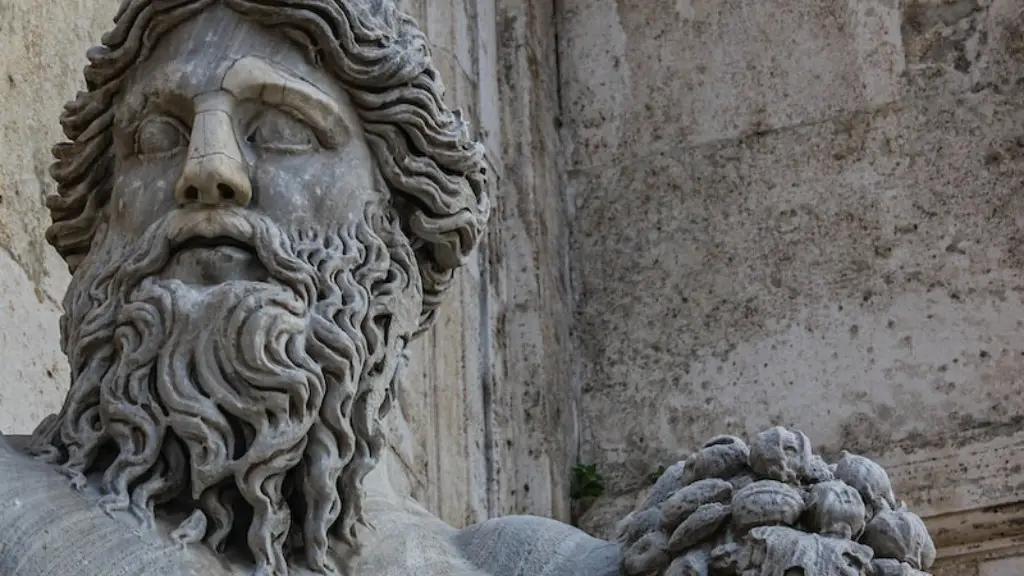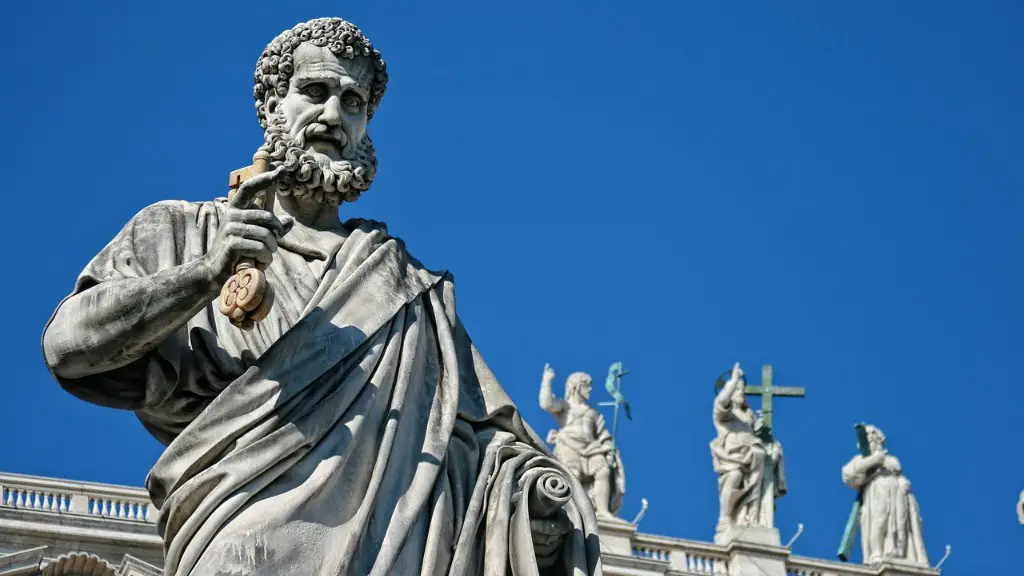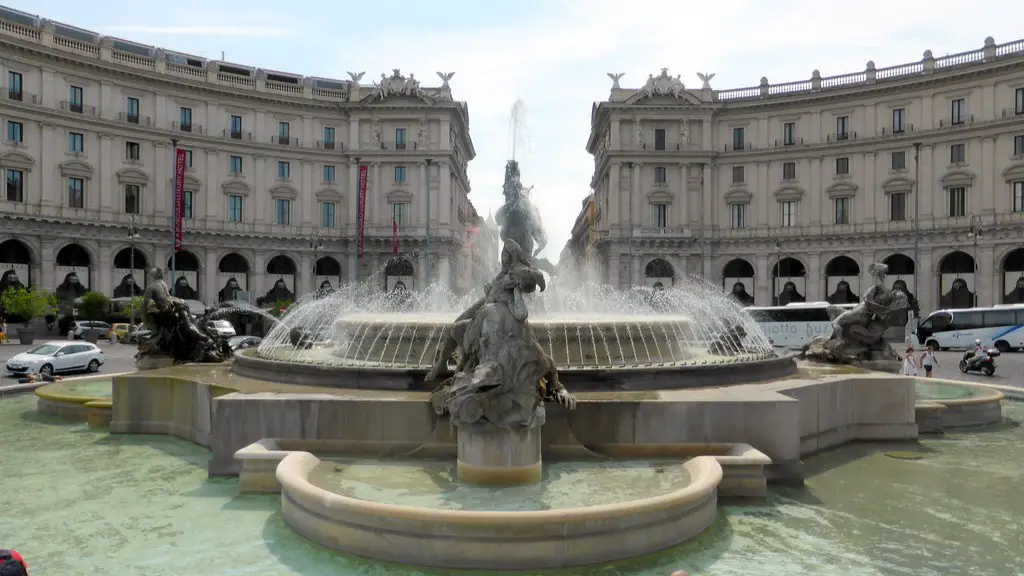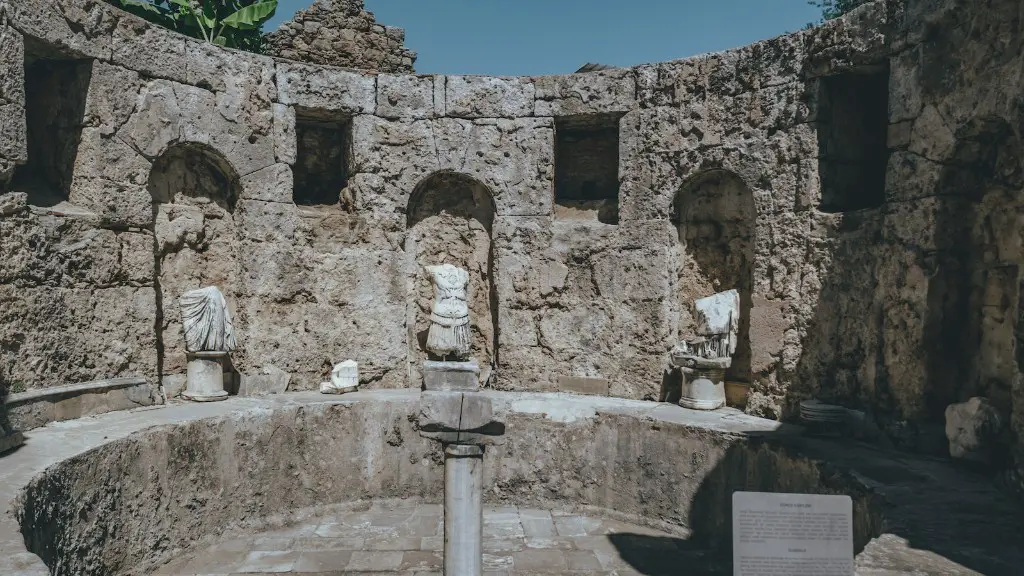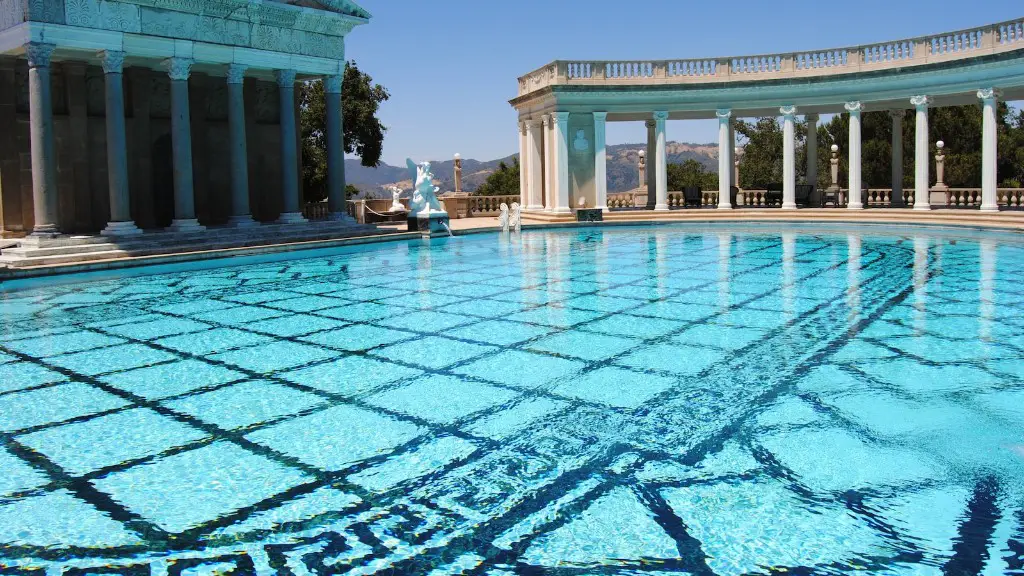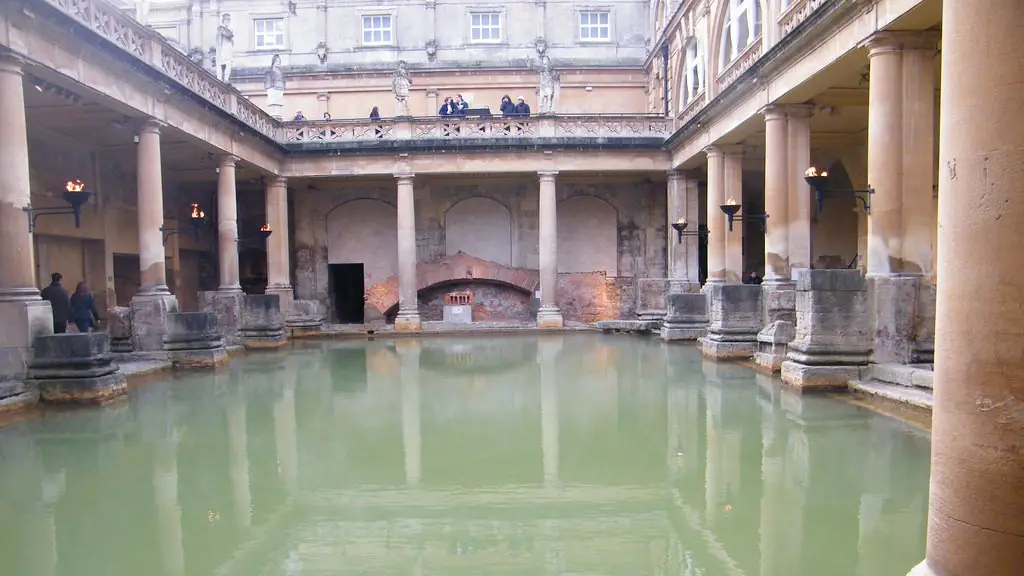The plebeian class of Ancient Rome dates back to the founding of the city, though they weren’t officially recognized as part of society until the reforms of 471 BC. For many centuries they were treated little better than slaves and were not allowed to participate in politics. Despite this, the plebeians were essential to the functioning of the state, with their labor and taxes providing the foundation of the strong economy that enabled Rome to become a superpower.
The plebeian class was composed of non-noble Romans. To be considered plebeian, a person had to be born between the noble patrician class and those of foreign origins, such as those from the provinces. It is believed that the majority of Roman citizens were plebeian and it was this class which provided the bulk of the labor for Rome’s armies, infrastructure projects and manual labor.
The role of the plebeian in Ancient Rome was multifaceted. They were responsible for many of the most important aspects of the state, from providing the labor to grow and harvest the crops, to providing the materials and labor for the construction of temples and other public works, as well as providing the manpower that was crucial to the Roman army. Despite their importance to the functioning of the state, they were not allowed to vote, stand in elections and take part in government until the plebeian reforms of 471 BC, which granted them limited rights.
Throughout Ancient Roman history, the plebeians were often in conflict with the aristocracy over issues such as unequal representation and taxes, as well as unequal access to public office. In order to solve these issues, they formed what were called ‘plebeian assemblies’. These assemblies held the power of passing their own laws and, in some cases, impeaching the ruling upper-class. This was a major achievement for the plebeians and allowed them to have a greater role in shaping the laws of the city state.
The plebeian of Ancient Rome were also part of the burgeoning religious and cultural life of the city. They participated in the major festivals such as Saturnalia, Secular Games and Ludi Plebeii, which were important religious and social events that helped to bring the plebeian class together. The plebeian’s beliefs and superstitions were also recorded in the works of the Roman historian Livy and other classical authors.
The plebeian class of Ancient Rome was essential for the functioning of the state, yet their role was largely overlooked by historians. This is largely due to their lack of formal political power, but their contribution to the city-state cannot be underestimated. Without their labor and taxes, Ancient Rome would not have been able to thrive and expand as it did.
Plebeian Representation in Government
The plebeian class of Ancient Rome had little influence on the political system until the reforms of 471 BC. Prior to this, they were only granted some limited rights and were excluded from being able to vote, stand in elections and take part in government. However, after the reforms, the plebeians began to gain more influence and representation in the government, thanks to the formation of their ‘plebeian assembly’.
The plebeian assembly gave the plebeians the right to pass their own laws, as well as to impeach government officials. This gave them a larger say in their country’s laws and provided a major shift in the dynamics of Roman government. This also allowed for greater representation of the plebeian class, as plebeian representatives were able to actively participate in debates and political discussions.
The plebeian assembly also provided a major boost to the economy of the city state. By allowing plebeian representatives to hold public offices, Rome was able to bring in new sources of income, such as revenue from the sale of goods, taxes and fees for services.
In addition to this, the plebeian assemblies also allowed for greater representation of the plebeians in the military. The plebeians formed their own military units, known as ‘legions of Mars’. These units were often led by prominent plebeians and took part in major wars and invasions on behalf of the Roman Empire.
Social Effects on the Plebeians
The reforms of 471 BC had a major impact on the social and economic dynamics of Ancient Rome. Not only did it grant the plebeians more rights and representation in government, but it also allowed them to gain greater access to the arts, religious rights and education. This allowed them to become more commonly accepted as members of Roman society and to take part in an expanding range of activities.
The newfound social privileges granted to the plebeian class allowed them to break down the long-standing social barriers that had been in place since the founding of Rome. Plebeian representatives were now able to participate in religious ceremonies and art, which was previously the sole purview of the patrician class. This allowed for a much more equitable social structure and allowed for the growth of a flourishing cultural life in Rome.
Additionally, the plebeian class was also able to take advantage of better educational opportunities. While the patricians held a monopoly over higher learning and education, the reforms of 471 BC allowed the plebeian class to gain access to the same education and learning opportunities. This allowed them to gain a more thorough knowledge of subjects such as politics, law, history and even medicine.
The role of the plebeian class in Ancient Rome was immensely important, both socially and economically. Their labor and taxes provided the foundation of the strong economy that enabled Rome to become a superpower, while their newfound rights and representation provided a more equitable social structure and access to education.
Impact on the Arts
The newfound social privileges of the plebeian class also had a major impact on the arts. As the plebeians were accepted into Roman society, they began to gain access to artistic and cultural activities, such as theater and literature. This allowed for a greater expression of creativity, which in turn led to the flourishing of Roman art.
The plebeians provided the majority of actors and theatergoers, helping to make the theater season a success in Rome. The plebeian class was also responsible for the introduction of new theatrical genres and styles, such as comedy and tragedy, which were heavily influenced by the plebeian class’s own beliefs and superstitions.
The plebeian class also had a major influence on literature as well. With their newfound rights, the plebeians began to write their own stories, which often focused on the struggles and successes of the plebeian class. This provided a new perspective on life in Ancient Rome, which was often missing from the works of the patrician class.
Furthermore, the plebeian class was also credited with experimenting with new forms of art and literature, such as poetry and painting. The plebeians were particularly fond of the epic poem the Aenaeid, which was composed by the legendary poet Virgil. This poem has been credited with inspiring many of the later works of Roman art and literature.
The Legacy of the Plebeian Class
The works of the plebeian class of Ancient Rome are still held in high regard today, with their influence still being felt on modern art, literature and culture. The plebeians have left behind a legacy of ingenuity, creativity and resilience that serves as an inspiration to modern society.
Not only did the plebeian class provide the foundation for the flourishing arts and literature of Rome, but they also provided the strong labor and taxes that allowed Rome to become a superpower. This legacy of the plebeian class is still felt in modern society, as every citizen in a democracy can look to the plebeian class of Ancient Rome for inspiration.
The plebeian class of Ancient Rome was instrumental in the growth of the city-state and their legacy still stands today. From providing much-needed labor and taxes to inspiring the flourishing of the arts and literature, the plebeian class’s impact cannot be underestimated.
Conclusion
The plebeian class of Ancient Rome played a vital role in the functioning of the city-state, yet their contributions were often overlooked. Despite their lack of formal political power, they provided the labor and taxes that allowed Rome to become a superpower, while their newfound rights and representation provided a more equitable social structure. They were also instrumental in the flourishing of art and literature, providing new perspectives on life in Roman society.
The plebeian class’s legacy still stands today, as their contributions have helped shape the world we live in. Their achievements serve as a reminder that a society can only truly flourish when there is equality and fairness for all citizens, no matter their class or background.
